|
By Adah Mbah, Executive Director Mother of Hope Cameroon and See the Triumph International Ambassador
Mother of Hope Cameroon-Mohcam, has been embarking on ending the stigma around intimate partner violence in Cameroon since March 2015 in partnership with See the Triumph. Fighting violence against women and girls is a permanent concern in our Head of State, His Execellency; President Paul Biya’s planning for a sustainable future within the framework of his major accomplishment policy. Cameroon is a bilingual country with a population density of about 23.3 million, and more than 50% of its population is dominated by women. Both women and men suffer from intimate partner violence, but the torture is more severe and common for women than men. This is evident from the work of Mohcam on intimate partner violence through women’s groups in Cameroon. Intimate partner violence extends to affecting victims’ relationships in the communities in which they belong negatively. They are stigmatized in church, women’s gathering, within their families and social groups, and at their job sites. Intimate partner violence makes women in Cameroon feel rejected, and a lot of them have died because of intimate partner violence. Intimate partner violence also has a negative effect on the country’s growth and development because women form a bulk of the country’s population. The stories of two women whom MOHCAM have worked with Mohcam make explicit what people need to know about intimate partner violence in Cameroon. The first woman is a teacher in her mid-30s. She has two children and is legally married to her husband, whose other children she also takes good care of. She has been abused for many years now, including physical, psychological, and economic abuse. Her husband has forced her out of the house that she contributed financially to, and she sought our help at Mohcam to ask us to intervene in the situation on her behalf. The second woman has three young children and was abandoned by her husband after he was violent toward her for a long time. In addition to reaching out to us at Mohcam, this woman has also taken the case to many legal institutions, like the customary court, bailiff, and judicial police, but he has not followed the requirements of these legal institutions. In particular, he has not paid monthly child support for many, many years. This is a serious issue, and Mohcam has been following up to ascertain the facts, and lawyers have been brought in to handle the case. These are typical cases amongst thousands in Cameroon. Intimate partner violence in Cameroon has grim consequences for women in their daily lives, especially in the African context. Many women have bought land properties in Cameroon, and today these assets are owned by their husbands as a result of intimate partner violence. In our country, this is slowing women’s growth and progress and is a violation of women’s rights. For these reasons, Mohcam remains dedicated to educating and advocating for women and girls, as well as creating opportunities to build future women leaders. We believe in the values of our mothers and want to give back as mothers in the development of the lives of women and girls living with stigma and pain. By N. Büşra Akçabozan, See the Triumph International Ambassador
What is intimate partner violence? The definition of intimate partner violence (IPV) should be clear in our minds. The term "intimate partner violence" describes physical violence, sexual violence, stalking, and psychological aggression (including coercive acts) by a current or former intimate partner. An intimate partner can be a spouse or a partner with whom you have been dating, cohabiting, having a sexual relationship, and/or sharing an emotional connectedness. As the description indicates, there are various types of IPV, although you might first think of ‘physical violence’. However, there are other types of IPV, which include: sexual violence (sexual acts committed against the victim without his/her freely given consent), stalking (repeated and unwanted behaviors and attitudes toward the victim who does not want to be exposed to, e.g., unwanted phone calls, emails, following, sneaking into the victim’s home, school, workplace and making threats etc.), and psychological aggression (harming and/or controlling the victim emotionally and psychologically, such as humiliating, excessive monitoring, and limiting behaviors). Have you ever thought of these types as types of IPV before? According to my observation and research, primarily physical violence followed by sexual violence has attracted attention in Turkish culture (in the literature, in daily life, and the news); however, stalking and psychological aggression have recently become a current issue. What is important for people to know about IPV that occurs in Turkey? Both in Turkey and across the globe, we know that women are at a significantly greater risk of IPV than men. According to 2014 statistics in Turkey (Ministry of Family and Social Policies, 2015), 4 out of every 10 women have been physically abused in Turkey. Among them, three fourths have been abused by their spouse. Most women who were victims of murder were murdered by their spouses. In general, sexual violence occurs with physical violence; 12% of women reported sexual partner violence, and 27% of women reported both physical and sexual partner violence. In terms of psychological violence, 44% of women reported that they have been psychologically abused by their partners for any period of time. All across Turkey, approximately 3 out of every 10 women have been stalked insistently. The health of Turkish women impacted by IPV has been affected in a negative way as a consequence of physical and/or sexual abuse. Some people believe in myths about IPV, such as “IPV occurs only between people who are not well educated” and/or “who are living in rural areas.” However, these myths are NOT TRUE. The percentage of physical violence in rural areas was 43%; however, in urban areas this percentage was high as well at 38%. Further, among women who are highly educated, 3 out of every 10 women reported being physically or sexually abused by their partners. Hence, based on the statistics, women in different age groups, educational levels, and socio-economic statuses are all under threat. 48.5% of women indicated that they could not tell anyone about the violence they were exposed to, and only 11% of women informed government agencies, which means that women have been struggling with violence ALONE. What can we learn from these numbers and percentages? Unfortunately, these numbers and percentages reveal how frequently IPV occurs and how lonely the victims of IPV are in Turkey; however, we know that the story is not much different across the globe. This information is important for us to be aware of the situation in Turkey in terms of IPV and to question ourselves, our partners, and our culture. We are NOT culture-free; however, we can be aware of the cultural and social norms we have been taught since we were born. For instance, I sometimes observe that individuals try to legitimize and justify IPV in their daily conversations, attitudes, behaviors, especially when it is used by men. This also happen in school systems, in the media, and even in the courts. We have to object to any behavior that encourages IPV violence and any excusive attitudes toward violent acts. We need to encourage survivors to tell their stories and be there for them to help them overcome the partner violence they were exposed to. We should develop supportive environments, provide more resources for victims of IPV, and start raising awareness about the importance of this issue, first in our own culture and then around the world. We should remember that every person around the world deserves to have a functional, nonviolent, and healthy relationship! Reference Ministry of Family and Social Policies (2014). Summary report of the research of domestic violence against women in Turkey (Türkiye’de Kadına Yönelik Aile İçi Şiddet Araştırması). Retrieved from http://www.hips.hacettepe.edu.tr/KKSA-TRAnaRaporKitap26Mart.pdf By Angiemil Pérez Peña, See the Triumph Guest Blogger Walking into the local shelter for someone experiencing domestic violence can be hard. Reaching out for help to the local community agency or navigating the local resources can be overwhelming for a local resident, but how much more daunting is it to navigate for an immigrant women? When seeking help for an abusive relationship, many immigrants experience increased difficulties and additional barriers for individuals in this group to exit their abusive relationship. The existing research tells us that documented immigrants, and even moreso for undocumented immigrants, are much less likely to report domestic violence to the police, compared to their non-immigrant counterparts.(1) Some of the barriers that immigrants experience when they do reach out for help include lack of fluency or speaking the dominant language, immigration status, financial dependency on their partners, lack of knowledge about their legal rights, not desiring to perpetuate negative stereotypes of their culture, and the lack of existing culturally appropriate services. Additionally, abusers may exploit these vulnerabilities to keep the victim in the relationships. When you consider the threats immigrant victims may receive--such as the abuser keeping their legal documents, threatening to call immigration and take away the children, refusing to file immigration papers, and denying access to legal documents, to name a few--you begin to understand the added difficulty for immigrant women leaving domestic violence. Changing the accessibility of resources for immigrant victims of domestic violence will take the involvement of the entire community. We need to continue to reinforce the idea that domestic violence is a social problem, and we all have to take part of the solution. This includes educating members and leaders of vulnerable communities to think of more social justice solutions. If you’re in a position to help an immigrant who is experiencing an abusive relationship, consider the following suggestions. First, help the person to consider ways to promote their safety, whether or not they leave the relationship. Second, think of the cultural strengths that individuals belonging to collectivistic culture may have, such as social support and having support family members that could help to protect them from an abuser. Third, educate yourself on specific resources available regarding immigration, protective laws such as VAWA, and additional local community resources. Fourth, make every effort to provide services in the native language or work with interpreters who are trained to understand domestic violence. Lastly, strive toward becoming culturally responsive to the needs of underserved populations. Working together, we can foster communities that offer support and safety for immigrant survivors of domestic violence. Reference: 1: Sokoloff, N. J. (2008). Expanding the intersectional paradigm to better understand domestic violence in immigrant communities. Critical Criminology: The Official Journal of the Asc Division on Critical Criminology and the Acjs Section on Critical Criminology, 16, 4, 229-255.  Angiemil Pérez Peña is a graduate student at The University of North Carolina at Greensboro studying Couple & Family counseling. By Sara Forcella, See the Triumph Contributor
On Friday, September 2, the now infamous Brock Turner was released from jail. His release followed his three-month sentence, after sexually assaulting a woman while she was unconscious. Turner was found guilty of three felonies, all related to this sexual assault, yet now we are watching his return to civilization, only three months later. While there has been much debate over Turner’s sentencing, as well as discussions of his privilege as a White male, one thing remains true: Brock Turner is out of jail. To many, the outcome of this case seemed shocking and unbelievable, but to me, it was just another day in the world of sexual violence advocacy. This is not to say that the outcome of this case didn’t infuriate me, because it did. But, hearing about perpetrators of sexual assault, even violent cases, that go unpunished has become the norm to me. The sad truth about sexual violence is that our legal system does not hold perpetrators accountable for their actions. Even as an advocate, when I see a case go to court, rarely does the perpetrator ever see a day in jail. Why are people who get caught with drugs being punished more than a person who sexually violates another human being? This seems inherently flawed to me yet, it’s the harsh reality for survivors and advocates all over our nation. It breaks my heart to sit by a survivor who wants her perpetrator brought to justice, to see them behind bars, or even just sweating in court, knowing that it’s very unlikely that any of this will occur. My heart breaks because I know that perpetrators of sexual violence are less likely to be sentenced to either jail or prison than perpetrators of other crimes. Statistics show that, out of every 1000 perpetrators of sexual violence, 994 of these people will walk around free (RAINN).* This statistic is downright terrifying. Even more telling: Of every 1000 perpetrators of sexual violence, 63 will be arrested, 13 cases will get referred to prosecutors, and only 6 perpetrators will be incarcerated (RAINN).* 6 out of 1000. Brock Turner is simply one of the 63 perpetrators who actually got arrested and 1 of the 6 who was incarcerated. But, that’s just it, he’s only one of them. It’s obvious that in the rare circumstance in which perpetrators of sexual violence are held accountable for their actions, they typically get a figurative slap on the wrist. Brock Turner was lucky in so many ways--he was lucky that he was white, that he came from a good family, and that he was a well known athlete at a top-notch university. Most of all though, Turner was lucky that he lives in a society where the legal system fails so many of its survivors and victims. The outcome of the Brock Turner case is not unusual; it’s commonplace, and that’s why we all should be outraged. It’s why we as a nation need to start holding perpetrators accountable for their actions, and pressuring our legal systems to do the same. *Reference: https://www.rainn.org/statistics/criminal-justice-system (RAINN is the nation’s largest anti-sexual violence organization and leading authority on sexual violence.) By Michelle Vann Horton, See the Triumph Guest Blogger
Places of worship are often viewed as safe havens, a refuge for those in need. This perception has been no different for many immigrant victims who suffer from intimate partner violence. Many times, immigrants reach out to their religious leaders first before seeking professional sources of support. This sounds like a good idea, since religious institutions play a vital role in helping immigrants maintain their cultural identity and stay connected to others. Can we assume that religious leaders who shares a similar cultural background would be empathetic to immigrant victims of intimate partner violence? Unfortunately, in many cases, this is not what happens. In reality, many religious leaders react negatively or are unsupportive to victims of abuse. There are many reasons this may happen. First, many religions promote a harmful patriarchal point of view, which promotes male domination over women. From this lens, gender norms are established where sexual inequality is accepted and upheld in families throughout generations. Second, group-oriented cultural ideologies often prioritize the advancement of the community, family unit, or marriage over the wellbeing of the self. In addition, cultural definition and perceptions of intimate partner violence can vary greatly, and in many immigrant communities, these issues are not even acknowledged. Together, these cultural views can contribute to the negative reactions religious leaders may project as they silence victims or blame the victims’ behavior as cause for the violence (i.e., victim-blaming). Leaders may relay the message that it is the victims’ responsibility to stop the violence and imply that victims’ abuse results from their failing in their relationship with God. It is important for immigrant victims of family violence to surround themselves with multiple sources of support, especially people and organizations that have expertise with helping people impacted by violence and abuse. I know this may be easier said than done, especially with the overwhelming barriers immigrant populations face daily, like language barriers, discrimination, adjusting to mainstream culture, and lacking knowledge about U.S. laws and available support systems. Due to these barriers, it is vital that community agencies have the training and the staff needed to meet the culture-specific needs of the growing immigrant population in the U.S. Moreover, it is imperative that domestic violence agencies also connect with religious institutions and leaders that serve immigrant communities in order to become more proactive in removing the stigma associated with family violence, especially within places of worship. As agencies partner with religious institutions, religious leaders can increase their competence in supporting victims and survivors, as well as create community norms that promote safe relationships and families. In addition, prevention and educational programs can be implemented that honor and respect cultural norms while reframing the ideals of what a healthy marriage and family looks like. Ultimately, religious leaders have the power to confront controversial issues like family violence in their preaching and in their teachings. The ability to take a stand against family violence while at the pulpit sends a direct message to congregants that promotes survivors’ safety and holds abusers accountable. |
Archives
April 2024
CategoriesAll About Intimate Partner Violence About Intimate Partner Violence Advocacy Ambassadors Children Churches College Campuses Cultural Issues Domestic Violence Awareness Month Financial Recovery How To Help A Friend Human Rights Human-rights Immigrants International Media Overcoming Past Abuse Overcoming-past-abuse Parenting Prevention Resources For Survivors Safe Relationships Following Abuse Schools Selfcare Self-care Sexual Assault Sexuality Social Justice Social-justice Stigma Supporting Survivors Survivor Quotes Survivor-quotes Survivor Stories Teen Dating Violence Trafficking Transformative-approaches |
Search by typing & pressing enter


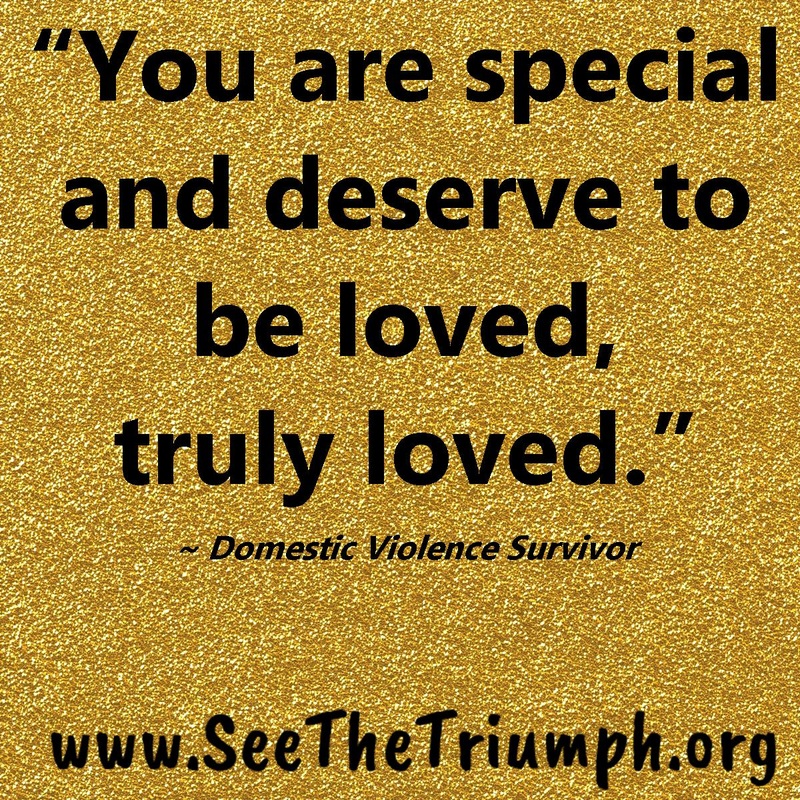
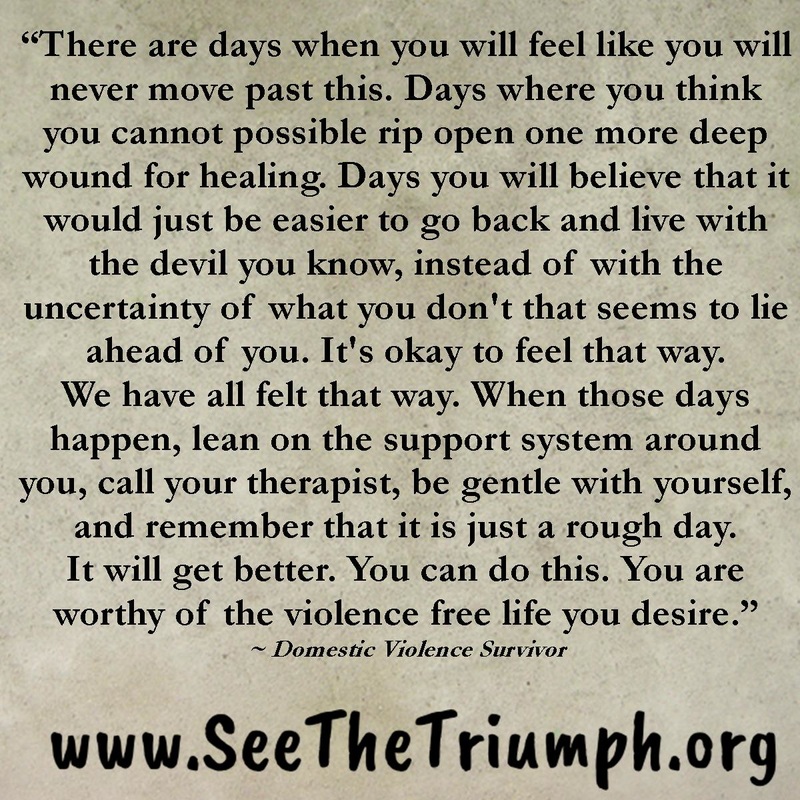




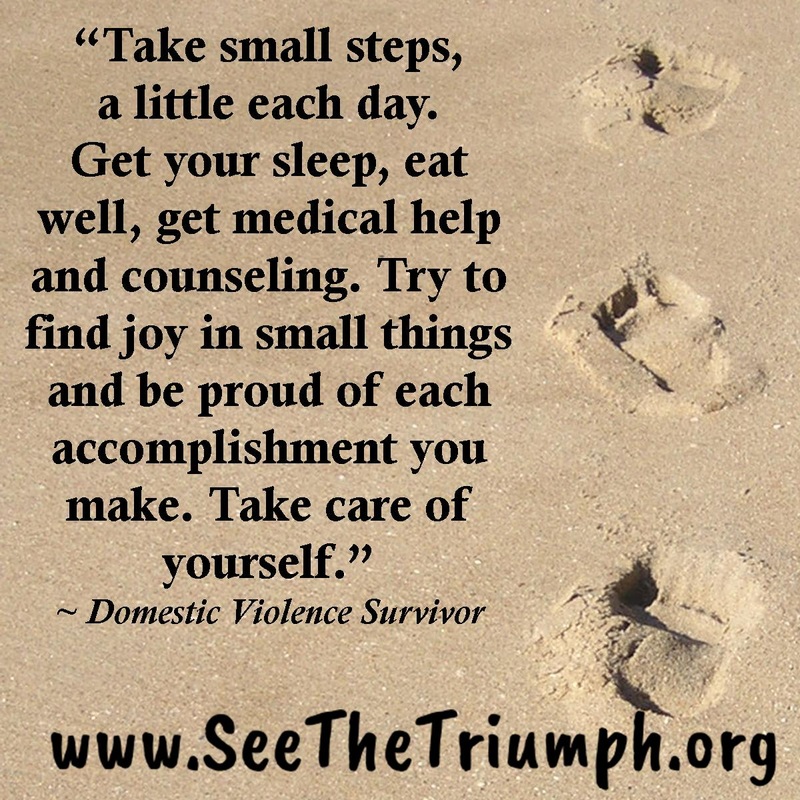
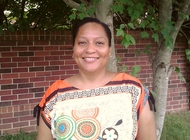
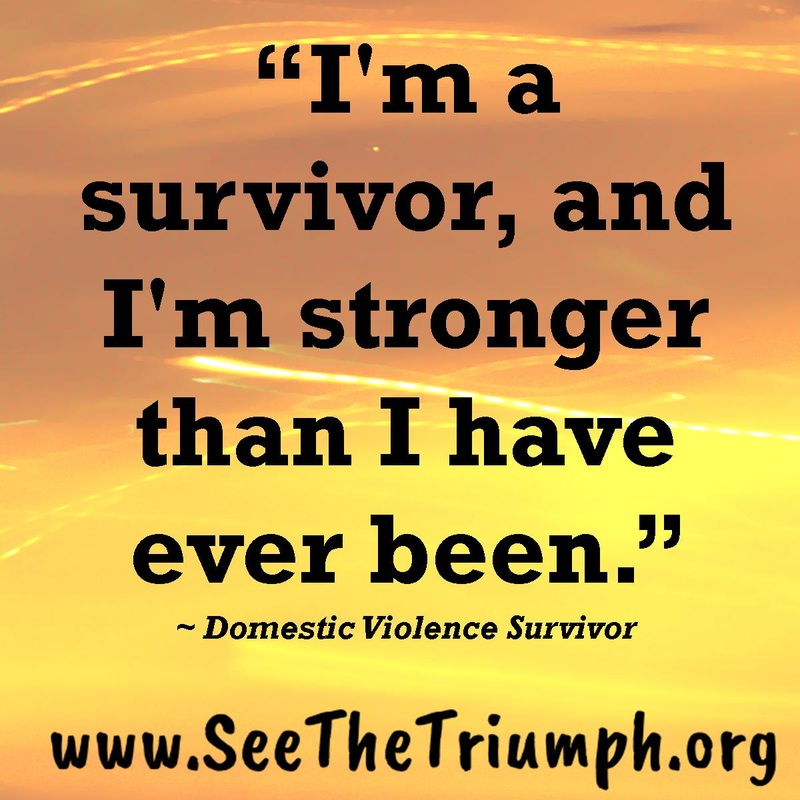
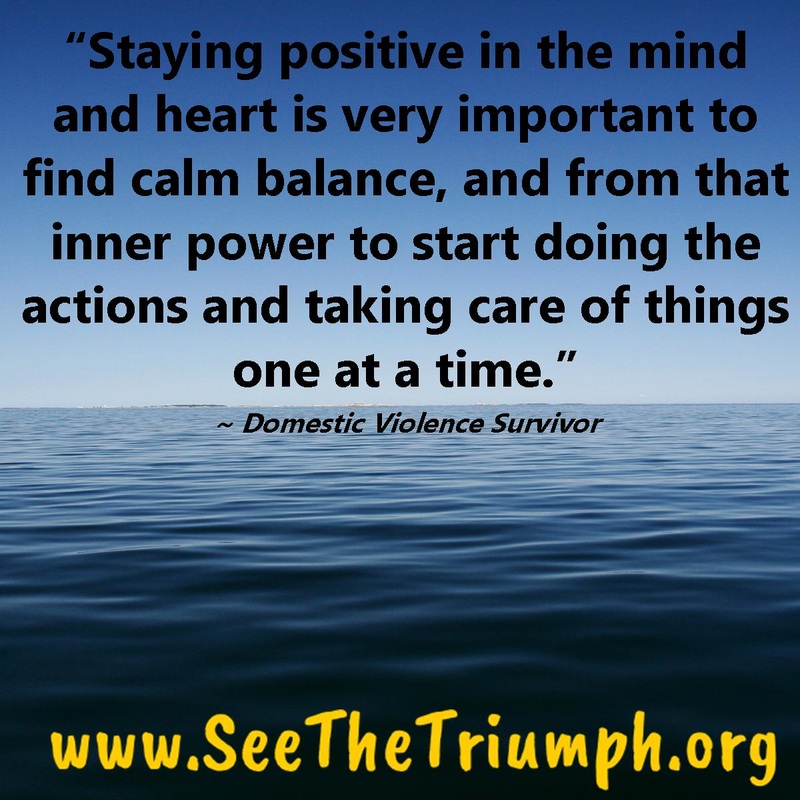
 RSS Feed
RSS Feed